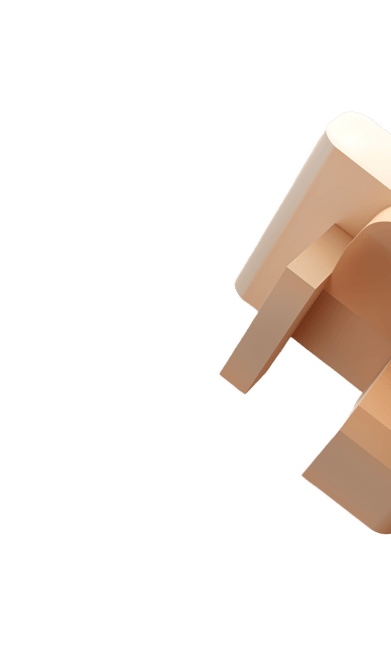5-year fixed-rate mortgages
A 5-year fixed-rate mortgage offers stability in a fluctuating market, but is it the right option for you? Find out how 5-year mortgages work with expert guidance from Better.co.uk.
Compare our best 5 year fixed mortgage deals
A 5-year fixed-rate mortgage is a popular option for homebuyers. Compare 5-year mortgage rates or speak to our expert mortgage brokers to find the right deal for you. Your home may be repossessed if you do not keep up repayments on your mortgage.
What is a 5 year fixed-rate mortgage?
A 5-year fixed-rate mortgage is a home loan with an interest rate that remains the same for five years. It is one of the most common fixed-rate mortgage terms available on the market.
All mortgage deals come with an interest rate that you’ll be charged on the balance of your mortgage. By choosing a 5-year fixed mortgage deal, you are guaranteeing that the rate won’t change for the length of the fixed term, and your monthly repayments will remain the same.
This means you’re protected against any market fluctuations or changes to the Bank of England base rate during your five-year term. This makes budgeting easier, and gives you the peace of mind of knowing your payments won’t suddenly shoot up.
Should I get a 5 year fixed-rate mortgage?
Whether or not a 5-year mortgage rate is the right option for you depends on several factors.
Firstly, think about your future plans. If you’re not planning to stay in your new property for five years, a shorter-term mortgage might be a better option. To leave a fixed term early, you will need to pay early repayment charges, which can be costly.
Your attitude to risk is another important factor. If you want the safety and security of knowing your payments won’t change, a 5-year fixed deal could be right for you. However, by tying your mortgage up for several years, you could miss out on better deals if the market changes.
Here are the pros and cons of a 5-year fixed mortgage to help you work out if it’s the right option for you:
Protection against rate changes: Your monthly repayments will be protected against any rate changes, no matter what happens in the wider market
Ability to budget: Knowing that your mortgage payments will remain the same for five years will make it easier to budget for the future
Fewer fees: By fixing your mortgage for five years, you will need to find deals less often, avoiding extra arrangement fees
Higher interest rates: It is often the case that 5-year fixed deals come with higher rates than shorter options like 2 or 3-year fixed mortgages. They can also be more expensive than long-term options like 10-year mortgages.
Miss out if rates fall: If interest rates in the wider mortgage market fall, you won’t see your payments go down, which you would if you had a variable-rate mortgage product.
High exit fees: If your situation changes, or you want to switch to a cheaper deal, you may face high early repayment charges. These are charged as a percentage of your balance and can prove costly.
What happens when my 5-year mortgage ends?
When your 5-year fixed-rate mortgage deal ends, you’ll usually be moved to your lender's standard variable rate (SVR). This rate is set by your lender and is often higher than most other fixed or variable rate deals.
SVR mortgages can also change the amount of interest they charge at any time and are usually an expensive option.
If you want to stay on a fixed interest rate, you’ll need to remortgage with a new mortgage provider or take up a new deal with your current lender.
Remortgage or product transfer
Most lenders will contact you several months before your fixed rate term ends with their latest deals for existing customers. You can then arrange what’s known as a ‘product transfer’, and lock in a new deal for when your fixed term ends.
It’s also worth looking further afield and comparing mortgages from other lenders. This would mean remortgaging, but you won’t be charged any exit fees once your fixed term has ended.
It’s worth remembering that interest rates fluctuate regularly, and you may find that any new mortgage deal you get is more expensive, even if you get a new fixed-rate deal.
What are the alternatives to a 5-year fixed-rate mortgage?
If you’re not sure a 5-year mortgage is right for you, you can choose a fixed rate over a different term. Most lenders also offer:
3-year fixed-rate mortgages
Some mortgage lenders even offer rates that are fixed for the whole term, e.g. 25 or 30 years, but these are rare. Alternatively, if you don’t want a fixed rate, you could consider a variable-rate mortgage.
There are several types of variable-rate mortgages, including discount mortgages and tracker mortgages. The interest rate for these loans fluctuates, often based on the Bank of England base rate or other market changes.
This means your monthly repayments can change regularly and be higher or lower than a fixed-rate deal, depending on the wider market.
Our expert says...
“5-year fixed rate mortgage deals are a popular option. They represent a middle ground between the longer-term security of a 10-year fixed deal and the relative insecurity and flexibility of 2-year fixed mortgages.
“They can come with higher interest rates than other options, so always compare deals. Speak to one of our expert mortgage brokers today to discuss 5-year mortgages and to help you find the right deal.”
Should you get a 2 year fixed rate?
Find out about the pros and cons of a 2 year fix
Is a 10 year fixed rate a good idea?
Find out who could benefit from a 10 year fix in this guide
Discover more about remortgaging
Everything you need to know in our remortgage guide
5-year fixed rate mortgage FAQs
When deciding whether you should opt for a 5-year fixed mortgage or a shorter-term deal like a 2-year mortgage, there are a few things to consider:
Interest rate stability: Are interest rates stable or likely to fluctuate in the future? A 5-year deal will give you more protection against rising rates compared to 2-year mortgages, but if rates go down, you could switch to a cheaper deal sooner with a 2-year fixed rate.
Monthly repayments: Traditionally, 2-year deals are the cheaper option; however, the difference between the two has reduced in recent years.
Future plans: When do you plan to move home? If you want to move in the near future, a 2-year deal would offer more flexibility, however, if you have no plans to move, a 5-year deal will give you more stability.
Your attitude to risk: If you are risk-averse, a 5-year deal offers the safety of knowing your repayments are set for an extended period. A 2-year deal means you could switch to a better deal more quickly, or face a hike in interest if rates have gone up.
A 5-year fixed-rate mortgage typically comes with slightly higher interest rates compared to shorter-term fixed-rate mortgages, like 2 or 3 years. This is because lenders tend to charge more for the stability and protection from interest rate fluctuations that you get from longer-term fixed mortgage deals.
However, this isn’t always the case, and in times of turbulent interest rates, fixing for a longer period can be cheaper. This is often down to the fact that shorter-term deals are more closely affected by movements in the Bank of England base rate.
When working out which deal is the most expensive, you should think about things like fees, charges, and any potential penalties for early repayment. For example, fixing for a longer period means you will need to switch mortgages less regularly, avoiding possible arrangement fees, but you’re more likely to face early repayment charges if your situation changes.
When working out what interest rate to offer you, mortgage lenders consider several factors, like your credit history and the deposit you put down.
Lenders will offer lower rates to those who they see as a ‘lower risk’. That refers to customers are most likely to keep up with their repayments and not fall into negative equity. So, if you have bad credit and a small deposit, you may be offered higher rates compared to somebody with good credit and a large deposit.
Mortgage rates are also set in line with the Bank of England base rate. As the base rate goes up, it means it is more expensive for the lender to borrow, so they pass this on to borrowers through higher rates.
For this reason, mortgage lenders will also adjust their rates in response to any other changes to their funding costs.
You can, but you will normally need to pay early repayment charges. These are usually charged as a percentage of your mortgage balance and become lower the closer you are to the end of your fixed-rate period.
For example, the ERC could be 5% of your mortgage balance during the first year of your term but gradually reduce to around 1% in the last year. In this example, if your balance is £200,000, your exit fees could be £10,000 in year one or £2,000 in year five.
If you want to leave your fixed-term deal early, work out exactly how much it will cost you in ERCs. If you're leaving your deal to move to a cheaper product, make sure any savings cover the cost of the fees you’ll need to pay.
No, you won’t be able to extend your current fixed-term deal when the 5-year period ends. Instead, you’ll need to move to a new product to stay on a fixed-term deal.
You can do this with your current lender by doing what’s known as a ‘product transfer’ or remortgage to a new mortgage provider. Remember that mortgage rates fluctuate, and your new deal may cost you more than your old one.
You can extend your whole mortgage term if you want to. If you’re in a fixed-rate deal, you may need to wait until your fixed term is over to do so, depending on your lender. This could reduce your monthly payments but would mean it will take longer for you to pay off your mortgage.
Get a mortgage with Better.co.uk today
Better.co.uk is a fee-free mortgage broker
4.8-star Trustpilot rating from over 9,000 reviews
Compare mortgage deals from over 100 lenders
Get matched with the right legal team with SmartBuyer
Fund a big expense with a Homeowner Loan
What people are saying about Better.co.uk...

Important info & marketing claims
You may have to pay an early repayment charge to your existing lender if you remortgage. Your savings will depend on personal circumstances.
Your home may be repossessed if you do not keep up repayments on your mortgage.
*89% of customers will be better off using Better.co.uk rather than going direct with their lender. Read more on our marketing claims page.
We can't always guarantee we will be able to help you with your mortgage application depending on your credit history and circumstances.
Average mortgage decision and approval times are based on Better.co.uk's historic data for lenders we submit applications to.
Tracker rates are identified after comparing over 12,000 mortgage products from over 100 mortgage lenders.
As of January 2023, Better.co.uk has access to over 100 lenders. This number is subject to change.
For buy-to-let landlords, there's no guarantee that it will be possible to arrange continuous letting of a property, nor that rental income will be sufficient to meet the cost of the mortgage.

